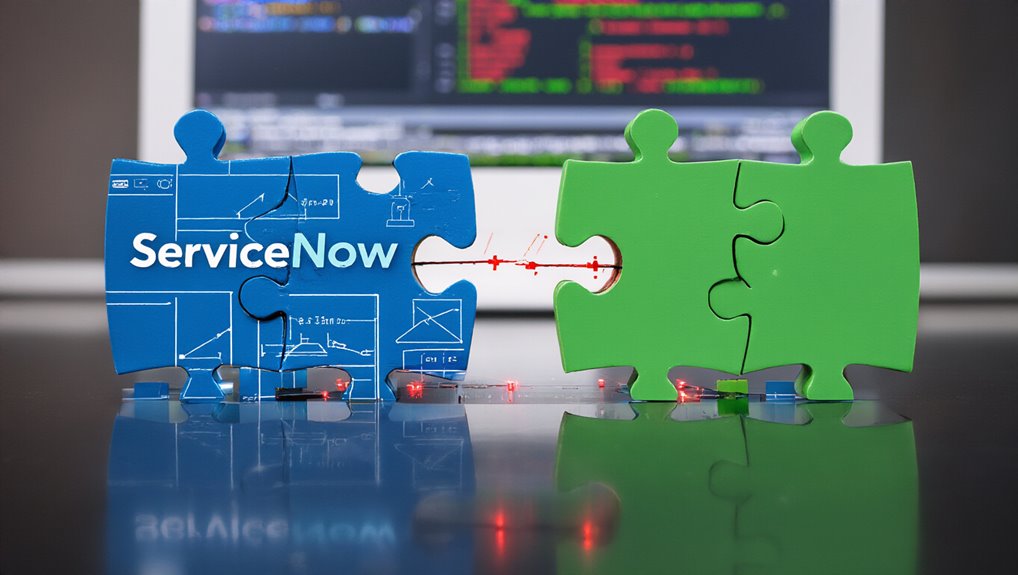While both companies have long operated in adjacent technology spaces, Salesforce and ServiceNow are now engaged in an intensifying battle for dominance in the customer experience management market. Salesforce currently holds a commanding 21.7-22.99% of the global CRM market, maintaining leadership for over a decade across multiple segments.
The tech giants’ rivalry intensifies as Salesforce defends its CRM kingdom against ServiceNow’s rapid advance into customer experience territory.
ServiceNow, though controlling just 1-2% of the CRM market, dominates the IT Service Management space with over 50% market share.
The competitive landscape reveals distinct growth trajectories. ServiceNow’s CRM segment is growing at an impressive 20-30% year-over-year, outpacing Salesforce’s 8-9% CRM growth. This momentum is further evidenced by ServiceNow’s Customer Workflows business reaching $1 billion in annual contract value faster than any competitor in the CRM space.
Each platform offers different strengths for organizations seeking customer experience solutions:
- Salesforce excels with its Sales Cloud, Service Cloud, Marketing Cloud, and Commerce Cloud, emphasizing omnichannel engagement.
- ServiceNow leverages its ITSM foundation to deliver a “system of action” approach that connects front-end service with back-office operations. The platform’s Customer Service Management (CSM) solution provides superior workflow integration capabilities for streamlining customer interactions.
AI capabilities represent a critical battleground. Salesforce’s Agentforce autonomous AI platform reduces routine inquiry costs by up to 50%, while ServiceNow’s AI Control Tower provides governance and compliance monitoring for CRM workflows. Salesforce has seen exceptional growth in its AI offerings with Data Cloud and Agentforce exceeding $1.2 billion in annual recurring revenue, up 120% year-over-year. Both employ generative AI, though Salesforce targets external customer interactions and ServiceNow focuses on internal operational automation.
The competitive gap remains substantial in terms of market penetration, with Salesforce’s approximately 60,000 Service Cloud customers dwarfing ServiceNow’s 9,000. However, ServiceNow’s rapid CRM growth and targeted acquisition strategy signal an aggressive push to capture market share. Both companies utilize popular enterprise programming languages like Java and Python to ensure their platforms offer the scalability needed for large-scale implementations.
As the CRM market expands toward a projected $128.97 billion by 2028, organizations must evaluate whether Salesforce’s established CRM dominance or ServiceNow’s operational workflow integration better meets their customer experience needs. The outcome of this competitive duel will likely reshape enterprise technology strategies for years to come.









